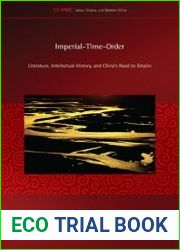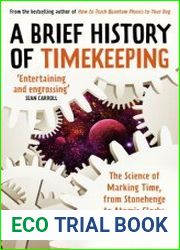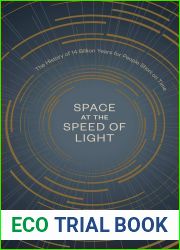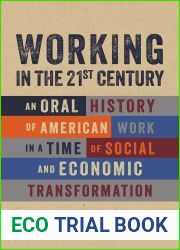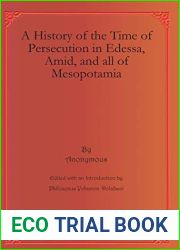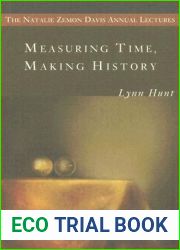
BOOKS - Marx After Marx History and Time in the Expansion of Capitalism

Marx After Marx History and Time in the Expansion of Capitalism
Author: Harry Harootunian
Year: January 1, 2015
Format: PDF
File size: PDF 1.4 MB
Language: English

Year: January 1, 2015
Format: PDF
File size: PDF 1.4 MB
Language: English

Marx After Marx: History and Time in the Expansion of Capitalism In this thought-provoking book, Harry Harootunian challenges the traditional Western interpretation of Marxism and its assumption that capitalism has reached its final stage of development. Instead, he delves into Marx's earlier works to uncover a more nuanced understanding of the evolution of capitalism and its impact on different regions of the world. By examining the diverse paths that capitalism took in the 20th century, Harootunian argues that local circumstances, time, and culture played a significant role in shaping the system of production, leading to a more expansive view of global capitalism than previously considered. The book begins by questioning the claims of Western Marxism and its presumption that the expected revolutions did not occur before World War II. This led to a cultural turn in the West, which was further reinforced during the Cold War, bolstering the belief that capitalism remained dominant in the struggle for progress. However, Harootunian suggests that this narrow focus on culture overlooks the significance of history and time in understanding the development of capitalism. He argues that Marx's earlier explanations of capital's origins and development provide a more comprehensive view of the system, one that takes into account the diverse experiences of different regions and cultures. Harootunian's analysis reveals how local circumstances, time, and culture influenced the development of capitalism in various parts of the world, including Asia, Africa, and Latin America.
Marx After Marx: History and Time in the Expansion of Capitalism В этой вызывающей размышления книге Гарри Харотуниан бросает вызов традиционной западной интерпретации марксизма и его предположению, что капитализм достиг своей последней стадии развития. Вместо этого он углубляется в более ранние работы Маркса, чтобы раскрыть более тонкое понимание эволюции капитализма и его влияния на различные регионы мира. Исследуя разнообразные пути, по которым пошел капитализм в XX веке, Харотуниан утверждает, что местные обстоятельства, время и культура сыграли значительную роль в формировании системы производства, что привело к более обширному взгляду на глобальный капитализм, чем считалось ранее. Книга начинается с того, что ставит под сомнение утверждения западного марксизма и его презумпцию того, что ожидаемые революции не произошли до Второй мировой войны. Это привело к культурному повороту на Западе, который еще более усилился во время холодной войны, укрепляя веру в то, что капитализм остается доминирующим в борьбе за прогресс. Однако Харотуниан предполагает, что этот узкий фокус на культуре упускает из виду значение истории и времени в понимании развития капитализма. Он утверждает, что ранние объяснения Маркса происхождения и развития капитала дают более полное представление о системе, которое учитывает разнообразный опыт различных регионов и культур. Анализ Харотуниана показывает, как местные обстоятельства, время и культура повлияли на развитие капитализма в различных частях мира, включая Азию, Африку и Латинскую Америку.
Marx After Marx : History and Time in the Expansion of Capitalism Dans ce livre évocateur, Harry Charotunian récuse l'interprétation occidentale traditionnelle du marxisme et son hypothèse que le capitalisme a atteint son dernier stade de développement. Au lieu de cela, il approfondit les travaux antérieurs de Marx pour révéler une compréhension plus subtile de l'évolution du capitalisme et de son impact sur les différentes régions du monde. En explorant les différentes voies suivies par le capitalisme au XXe siècle, Charotunian affirme que les circonstances locales, le temps et la culture ont joué un rôle important dans la formation du système de production, ce qui a conduit à une vision plus large du capitalisme mondial que ce que l'on croyait auparavant. livre commence par remettre en question les affirmations du marxisme occidental et sa présomption que les révolutions attendues n'ont pas eu lieu avant la Seconde Guerre mondiale. Cela a entraîné un virage culturel en Occident, qui s'est encore intensifié pendant la guerre froide, renforçant la conviction que le capitalisme reste dominant dans la lutte pour le progrès. Cependant, Charotunian suggère que cet accent étroit sur la culture perd de vue l'importance de l'histoire et du temps dans la compréhension du développement du capitalisme. Il affirme que les premières explications de Marx sur l'origine et le développement du capital donnent une idée plus complète d'un système qui tient compte de la diversité des expériences des différentes régions et cultures. L'analyse de Charotunian montre comment les circonstances locales, le temps et la culture ont influencé le développement du capitalisme dans différentes parties du monde, y compris l'Asie, l'Afrique et l'Amérique latine.
Marx After Marx: Historia y tiempo en la expansión del capitalismo En este libro evocador, Harry Harotunian desafía la interpretación occidental tradicional del marxismo y su suposición de que el capitalismo ha alcanzado su última etapa de desarrollo. En cambio, profundiza en las obras anteriores de Marx para revelar una comprensión más sutil de la evolución del capitalismo y su influencia en diversas regiones del mundo. Explorando los diversos caminos que el capitalismo tomó en el siglo XX, Harotunian sostiene que las circunstancias locales, el tiempo y la cultura jugaron un papel significativo en la formación del sistema de producción, lo que llevó a una visión más extensa del capitalismo global de lo que se pensaba anteriormente. libro comienza cuestionando las afirmaciones del marxismo occidental y su presunción de que las esperadas revoluciones no ocurrieron antes de la Segunda Guerra Mundial. Esto dio lugar a un giro cultural en Occidente que se intensificó aún más durante la Guerra Fría, fortaleciendo la creencia de que el capitalismo seguía siendo dominante en la lucha por el progreso. n embargo, Harotunian sugiere que este estrecho enfoque en la cultura pasa por alto la importancia de la historia y el tiempo en la comprensión del desarrollo del capitalismo. Sostiene que las primeras explicaciones de Marx sobre el origen y desarrollo del capital proporcionan una visión más completa de un sistema que tiene en cuenta las diversas experiencias de las diferentes regiones y culturas. análisis de Harotunian muestra cómo las circunstancias locales, el tiempo y la cultura han influido en el desarrollo del capitalismo en varias partes del mundo, incluyendo Asia, África y América Latina.
Marx After Marx: History and Time in the Expo of Capitalism Neste livro desafiador, Harry Harotunian desafia a interpretação tradicional ocidental do marxismo e sua suposição de que o capitalismo atingiu seu último estágio de desenvolvimento. Em vez disso, aprofundou-se nos trabalhos anteriores de Marx para revelar uma compreensão mais sutil da evolução do capitalismo e de sua influência em várias regiões do mundo. Explorando os diversos caminhos que o capitalismo tomou no século XX, Harotunian afirma que as circunstâncias locais, o tempo e a cultura desempenharam um papel significativo na formação do sistema de produção, levando a uma visão mais ampla do capitalismo global do que se pensava. O livro começa por questionar as alegações do marxismo ocidental e sua suposição de que as revoluções previstas não ocorreram antes da Segunda Guerra Mundial. Isso levou a uma reviravolta cultural no Ocidente, que se intensificou ainda mais durante a Guerra Fria, reforçando a crença de que o capitalismo continua a dominar a luta pelo progresso. No entanto, Harotunian sugere que este foco cultural estreito deixa escapar a importância da história e do tempo na compreensão do capitalismo. Ele afirma que as explicações iniciais de Marx sobre origem e desenvolvimento de capital oferecem uma visão mais completa de um sistema que leva em conta experiências variadas de diferentes regiões e culturas. A análise de Harotunian mostra como as circunstâncias locais, o tempo e a cultura influenciaram o capitalismo em várias partes do mundo, incluindo Ásia, África e América Latina.
Marx After Marx: History and Time in the Expansion of Capitalism In questo libro di riflessione, Harry Harotunian sfida la tradizionale interpretazione occidentale del marxismo e il suo presupposto che il capitalismo abbia raggiunto il suo ultimo stadio di sviluppo. sta invece approfondendo nelle opere precedenti di Marx per rivelare una più sottile comprensione dell'evoluzione del capitalismo e del suo impatto su diverse regioni del mondo. Esplorando le varie strade intraprese dal capitalismo nel XX secolo, Harotunian sostiene che le circostanze locali, il tempo e la cultura hanno avuto un ruolo significativo nella formazione del sistema produttivo, che ha portato a una visione più ampia del capitalismo globale di quanto si pensasse. Il libro inizia mettendo in discussione le affermazioni del marxismo occidentale e la sua presunzione che le rivoluzioni previste non siano avvenute prima della seconda guerra mondiale. Ciò ha portato a una svolta culturale in Occidente, che si è ulteriormente intensificata durante la guerra fredda, rafforzando la convinzione che il capitalismo resti dominante nella lotta per il progresso. Ma Harotunian suggerisce che questo stretto focus sulla cultura stia perdendo di vista l'importanza della storia e del tempo nella comprensione dello sviluppo del capitalismo. Sostiene che le prime spiegazioni di Marx sull'origine e lo sviluppo dei capitali offrono una visione più completa di un sistema che tiene conto delle diverse esperienze di diverse regioni e culture. L'analisi di Harotunian mostra come le circostanze locali, il tempo e la cultura abbiano influenzato lo sviluppo del capitalismo in diverse parti del mondo, tra cui Asia, Africa e America Latina.
Marx nach Marx: Geschichte und Zeit in der Expansion des Kapitalismus In diesem nachdenklich stimmenden Buch stellt Harry Harotunian die traditionelle westliche Interpretation des Marxismus und seine Annahme in Frage, dass der Kapitalismus sein letztes Entwicklungsstadium erreicht hat. Stattdessen taucht er in frühere Arbeiten von Marx ein, um ein differenzierteres Verständnis der Entwicklung des Kapitalismus und seiner Auswirkungen auf verschiedene Regionen der Welt aufzudecken. Bei der Untersuchung der vielfältigen Wege, die der Kapitalismus im 20. Jahrhundert eingeschlagen hat, argumentiert Harotunian, dass lokale Umstände, Zeit und Kultur eine bedeutende Rolle bei der Gestaltung des Produktionssystems spielten, was zu einer umfassenderen chtweise des globalen Kapitalismus führte als bisher angenommen. Das Buch beginnt damit, die Behauptungen des westlichen Marxismus und seine Vermutung in Frage zu stellen, dass die erwarteten Revolutionen nicht vor dem Zweiten Weltkrieg stattfanden. Dies führte zu einer kulturellen Wende im Westen, die sich während des Kalten Krieges weiter verstärkte und den Glauben stärkte, dass der Kapitalismus im Kampf um den Fortschritt dominant bleibt. Harotunian schlägt jedoch vor, dass dieser enge Fokus auf Kultur die Bedeutung von Geschichte und Zeit für das Verständnis der Entwicklung des Kapitalismus übersieht. Er argumentiert, dass Marx'frühe Erklärungen der Entstehung und Entwicklung des Kapitals ein umfassenderes Bild des Systems vermitteln, das die vielfältigen Erfahrungen verschiedener Regionen und Kulturen berücksichtigt. Harotunians Analyse zeigt, wie lokale Umstände, Zeit und Kultur die Entwicklung des Kapitalismus in verschiedenen Teilen der Welt, einschließlich Asien, Afrika und Lateinamerika, beeinflusst haben.
Marx Po Marksie: Historia i czas w ekspansji kapitalizmu W tej prowokującej do myślenia książce Harry Harotunian kwestionuje tradycyjną zachodnią interpretację marksizmu i jego założenie, że kapitalizm osiągnął ostateczny etap rozwoju. Zamiast tego zagłębia się we wcześniejsze dzieło Marksa, aby ujawnić bardziej zniuansowane zrozumienie ewolucji kapitalizmu i jego wpływu na różne regiony świata. Badając różnorodne ścieżki, które kapitalizm podjął w XX wieku, Harotunian twierdzi, że lokalne okoliczności, czas i kultura odegrały znaczącą rolę w kształtowaniu systemu produkcji, co doprowadziło do szerszego spojrzenia na globalny kapitalizm niż wcześniej sądzono. Książka rozpoczyna się od kwestionowania twierdzeń marksizmu zachodniego i jego domniemania, że spodziewane rewolucje nie miały miejsca przed II wojną światową. Doprowadziło to do przemiany kulturowej na Zachodzie, która nasiliła się w czasie zimnej wojny, wzmacniając przekonanie, że kapitalizm nadal dominuje w walce o postęp. Harotunian sugeruje jednak, że ten wąski nacisk na kulturę pomija znaczenie historii i czasu w zrozumieniu rozwoju kapitalizmu. Twierdzi, że wczesne wyjaśnienia Marksa dotyczące pochodzenia i rozwoju kapitału stanowią pełniejszy obraz systemu, który uwzględnia różnorodne doświadczenia różnych regionów i kultur. Analiza Harotuniana pokazuje, jak lokalne okoliczności, czas i kultura wpłynęły na rozwój kapitalizmu w różnych częściach świata, w tym w Azji, Afryce i Ameryce Łacińskiej.
''
Marx'tan Sonra: Kapitalizmin Genişlemesinde Tarih ve Zaman Bu düşündürücü kitapta Harry Harotunian, geleneksel Batı Marksizm yorumuna ve kapitalizmin gelişiminin son aşamasına ulaştığı varsayımına meydan okuyor. Bunun yerine, kapitalizmin evrimi ve dünyanın farklı bölgeleri üzerindeki etkisi hakkında daha incelikli bir anlayış ortaya koymak için Marx'ın önceki çalışmalarına giriyor. Kapitalizmin 20. yüzyılda izlediği çeşitli yolları inceleyen Harotunian, yerel koşulların, zamanın ve kültürün üretim sistemini şekillendirmede önemli bir rol oynadığını ve bunun da küresel kapitalizmin daha önce düşünülenden daha kapsamlı bir görüşüne yol açtığını savunuyor. Kitap, Batı Marksizminin iddialarını ve beklenen devrimlerin II. Dünya Savaşı'ndan önce gerçekleşmediği varsayımını sorgulayarak başlıyor. Bu, Batı'da Soğuk Savaş sırasında daha da yoğunlaşan ve kapitalizmin ilerleme mücadelesinde baskın kaldığı inancını güçlendiren kültürel bir dönüşe yol açtı. Bununla birlikte, Harotunian, kültür üzerine bu dar odaklanmanın, kapitalizmin gelişimini anlamada tarihin ve zamanın önemini gözden kaçırdığını öne sürüyor. Marx'ın sermayenin kökeni ve gelişimi hakkındaki ilk açıklamalarının, farklı bölgelerin ve kültürlerin farklı deneyimlerini dikkate alan sistemin daha eksiksiz bir görünümünü sağladığını savunuyor. Harotunyan'ın analizi, yerel koşulların, zamanın ve kültürün Asya, Afrika ve Latin Amerika da dahil olmak üzere dünyanın çeşitli yerlerinde kapitalizmin gelişimini nasıl etkilediğini göstermektedir.
ماركس بعد ماركس: التاريخ والوقت في توسع الرأسمالية في هذا الكتاب المثير للتفكير، يتحدى هاري هاروتونيان التفسير الغربي التقليدي للماركسية وافتراضها أن الرأسمالية قد وصلت إلى مرحلتها النهائية من التطور. بدلاً من ذلك، يتعمق في عمل ماركس السابق للكشف عن فهم أكثر دقة لتطور الرأسمالية وتأثيرها على مناطق مختلفة من العالم. من خلال دراسة المسارات المتنوعة التي سلكتها الرأسمالية في القرن العشرين، يجادل هاروتونيان بأن الظروف المحلية والوقت والثقافة لعبت دورًا مهمًا في تشكيل نظام الإنتاج، مما أدى إلى رؤية أكثر شمولاً للرأسمالية العالمية مما كان يعتقد سابقًا. يبدأ الكتاب بالتشكيك في ادعاءات الماركسية الغربية وافتراضها بأن الثورات المتوقعة لم تحدث قبل الحرب العالمية الثانية. وقد أدى ذلك إلى تحول ثقافي في الغرب اشتد أكثر خلال الحرب الباردة، مما عزز الاعتقاد بأن الرأسمالية لا تزال مهيمنة في النضال من أجل التقدم. ومع ذلك، يقترح هاروتونيان أن هذا التركيز الضيق على الثقافة يتجاهل أهمية التاريخ والوقت في فهم تطور الرأسمالية. يجادل بأن تفسيرات ماركس المبكرة لأصل وتنمية رأس المال توفر نظرة أكثر اكتمالا للنظام الذي يأخذ في الاعتبار التجارب المتنوعة لمختلف المناطق والثقافات. يوضح تحليل هاروتونيان كيف أثرت الظروف المحلية والوقت والثقافة على تطور الرأسمالية في أجزاء مختلفة من العالم، بما في ذلك آسيا وأفريقيا وأمريكا اللاتينية.
Marx After Marx: Capitalism Expansion中的歷史和時間在這本令人反思的書中,Harry Harotunian挑戰了西方對馬克思主義的傳統解釋,以及他認為資本主義已經達到了發展的最後階段。相反,他深入研究了馬克思的早期著作,以揭示對資本主義演變及其對世界不同地區的影響的更深入的了解。哈羅圖尼安(Harotunian)探索了資本主義在20世紀走的各種方式,認為當地情況,時代和文化在形成生產體系方面發揮了重要作用,導致對全球資本主義的看法比以前想象的要廣泛。這本書首先質疑西方馬克思主義的主張及其推定,即預期的革命直到第二次世界大戰才發生。這導致了西方的文化轉折,在冷戰期間進一步加劇,鞏固了資本主義在爭取進步的鬥爭中仍然占主導地位的信念。但是,Harotunian認為,這種對文化的狹隘關註忽略了歷史和時間在理解資本主義發展中的重要性。他認為,馬克思對資本起源和發展的早期解釋可以更全面地了解一個系統,該系統考慮了不同地區和文化的不同經驗。Harotunian的分析揭示了當地情況,時代和文化如何影響世界各個地區(包括亞洲,非洲和拉丁美洲)的資本主義發展。
















